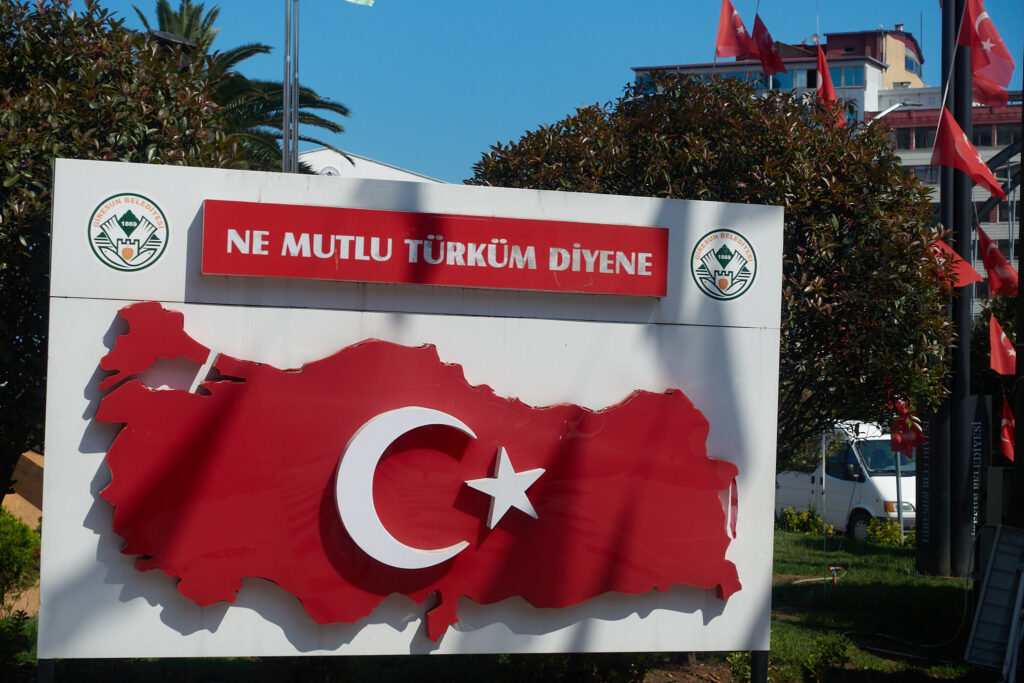We master the border crossing from Georgia to Turkey with flying colors. We skillfully shimmy past the line of cars until we are waved in. The Turkish border guard is happy that he can use his German learned in school two hours a week. 1200 kilometers of Black Sea coast to Istanbul lie ahead of us. In Hopa, the first bigger town on the Black Sea coast, we buy a SIM card. In Ardesen, Park4Night finds the super nice Danzi Camping where we are once again alone with the staff. We talk with Halit, Achmet and Gemre via cell phone translator. Alcohol is not allowed on the campsite – you are not able to buy beer in town anyway.
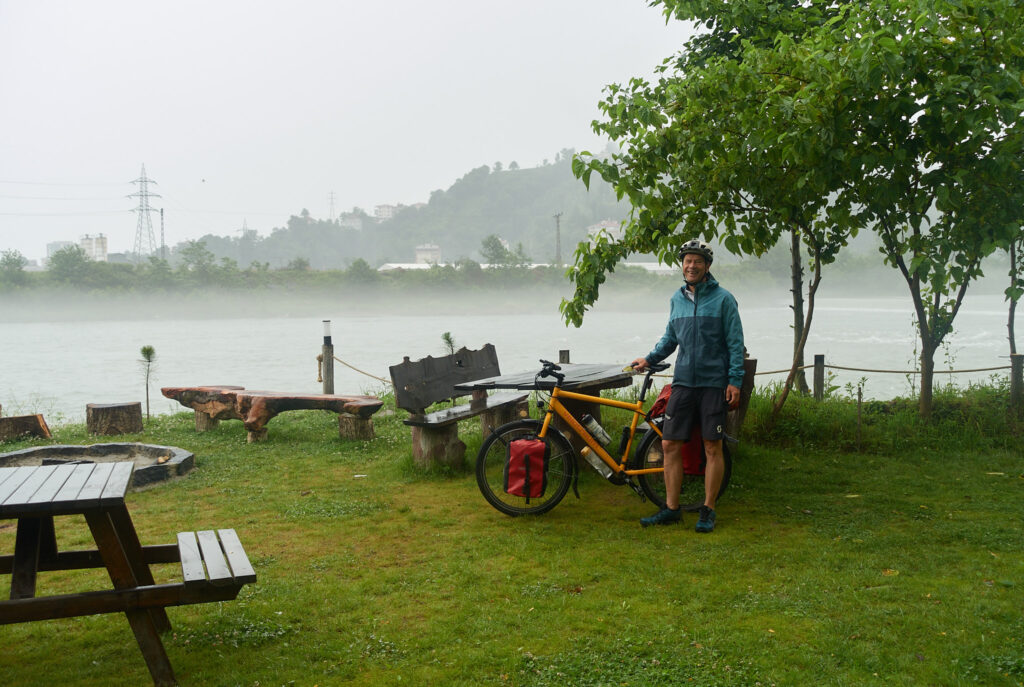
Some Turks who have worked in Germany for many years address us on the way when they hear German words. Otherwise, communication is now the biggest challenge. German goes even better than English, at least when you meet a former guest worker.
We decide to make some distance on the coastal highway before turning inland. There is almost continuously a wide hard shoulder, like made for us.
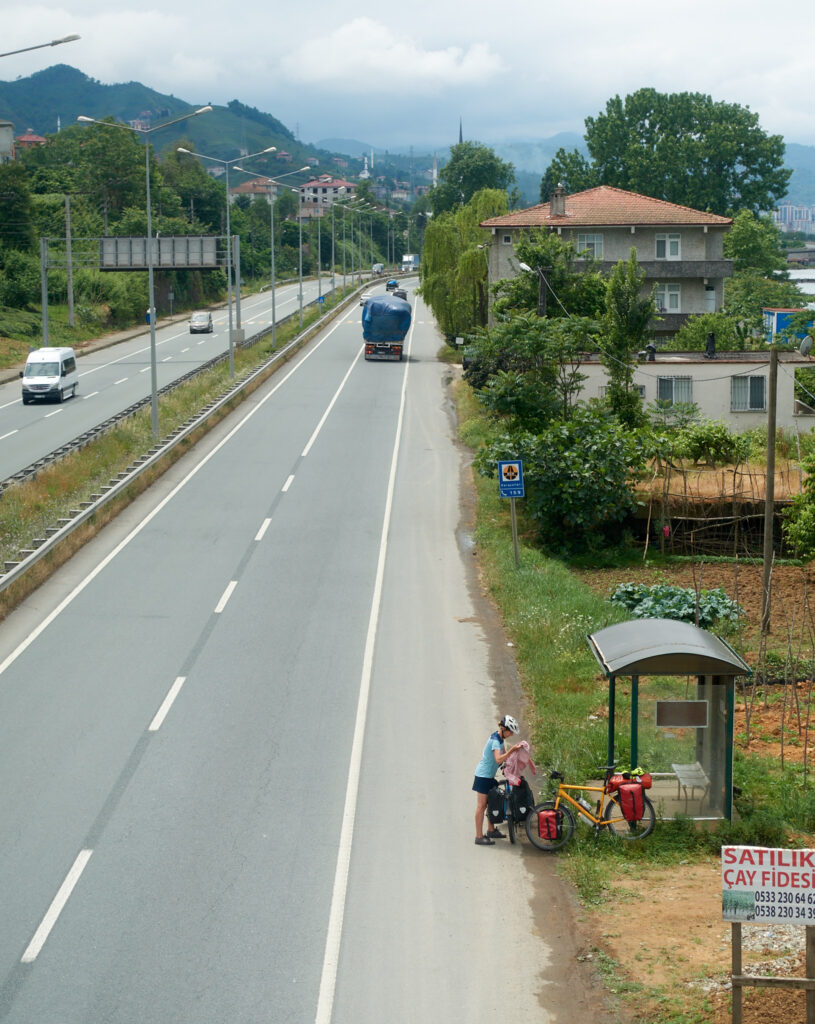
The road actually always leads directly along the water and we are on the sea side and thus often bypass the numerous tunnels which have no hard shoulder. The mountains drop quite steeply into the sea. The cities that squeeze in between the expressway are all rather functional with high-rise buildings than beautiful. However, the houses are in good condition throughout.
On the first 200 kilometers after the border, the hillsides up to Trabzon are full of tea plantations. It is harvest time and we are overtaken by fragrant, fully loaded tea trucks bringing the harvest to the next tea factory.
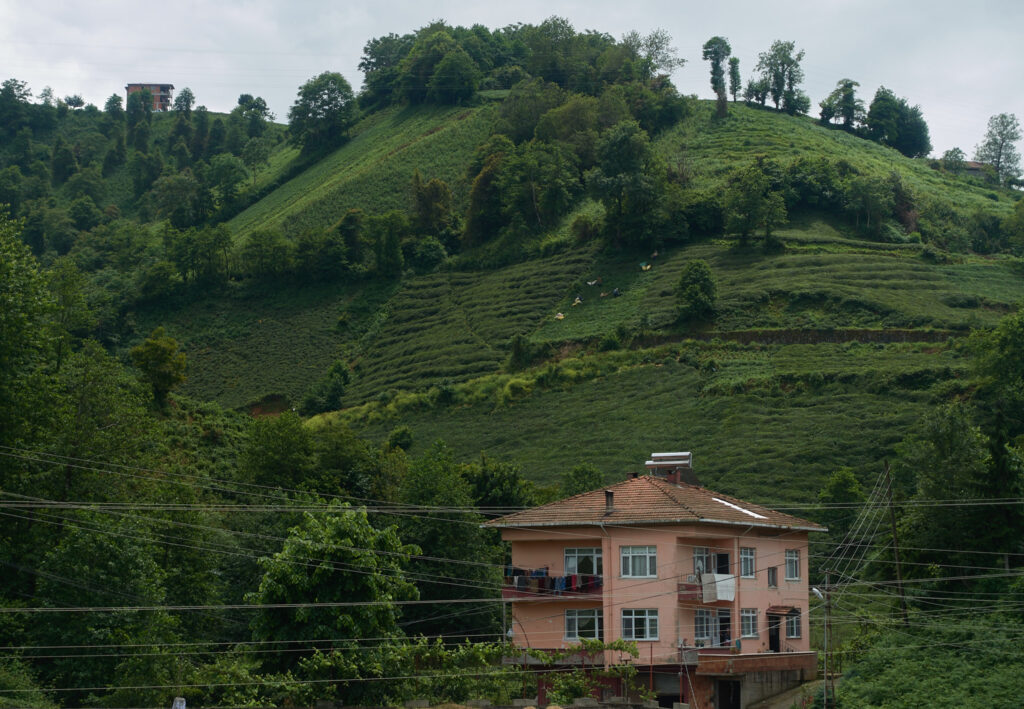
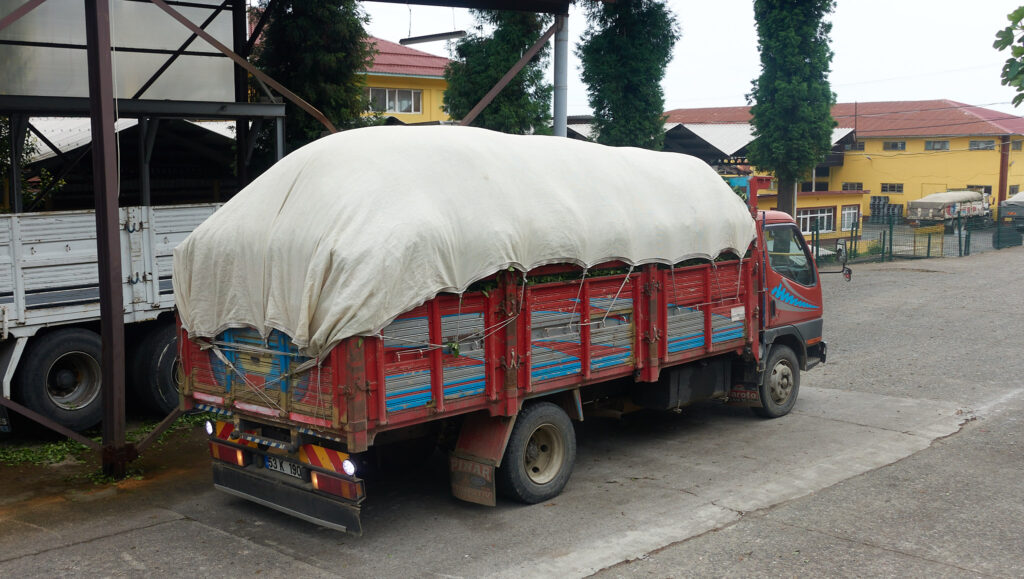
We pass at least ten factories of the state-owned tea company Caykur which all look the same in each town – and smell good, too.
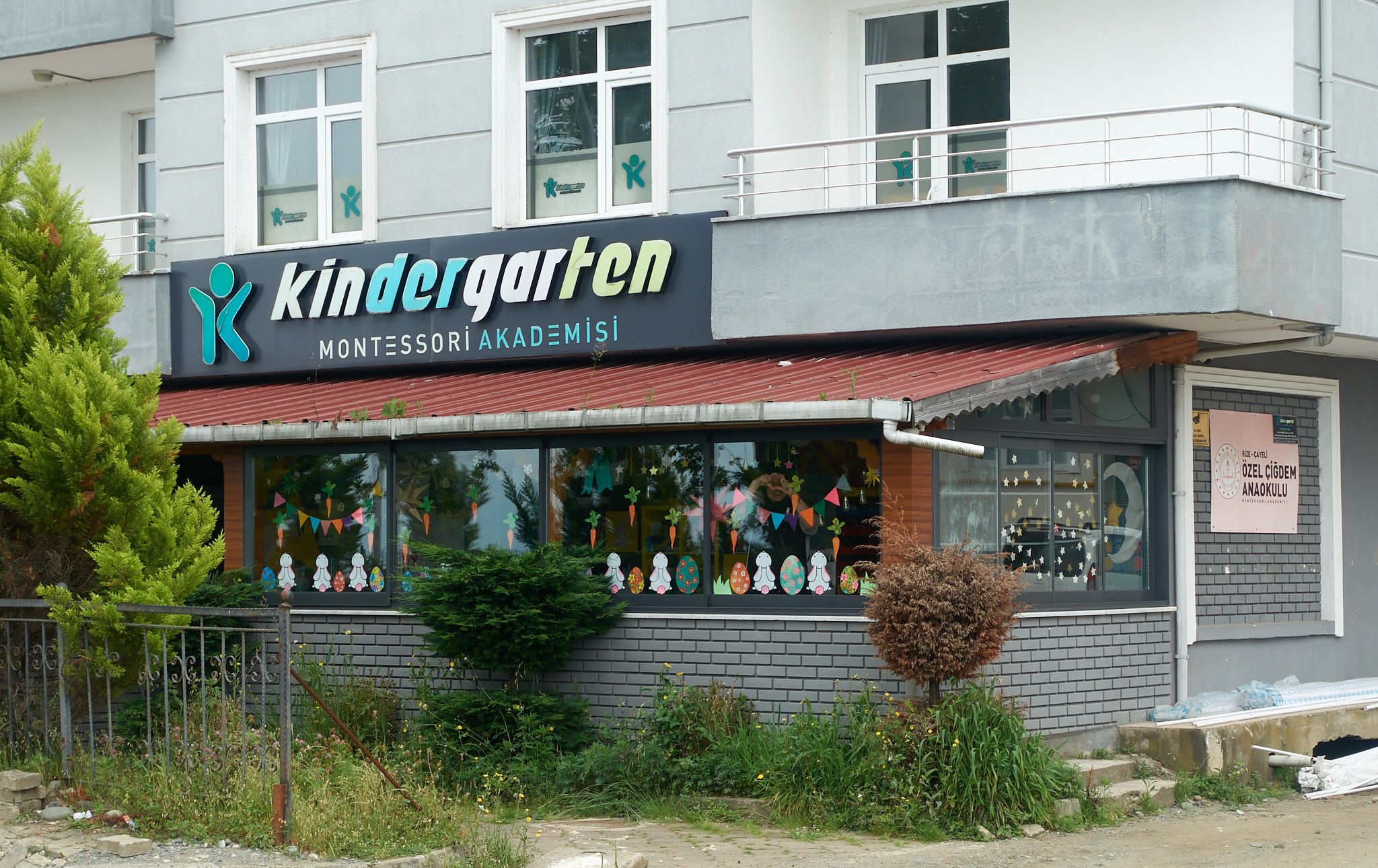
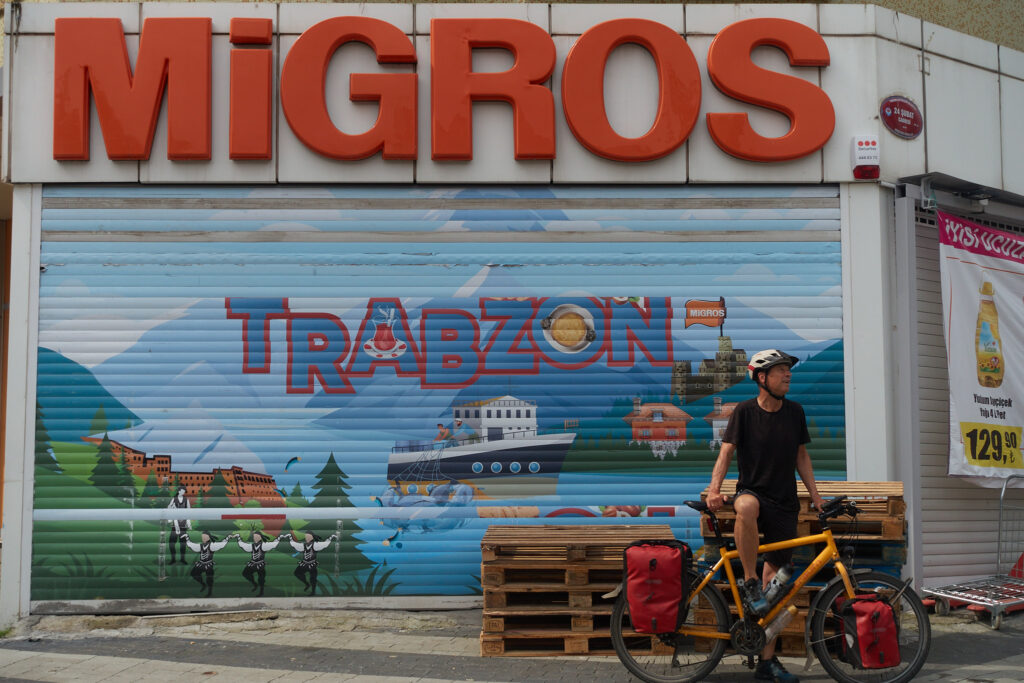
From Trabzon, the tea plantations change to hazelnut plantations. The hazelnuts are not ripe right now and so it is also quite quiet in the cargo port of Trabzon. We stay in a great hotel with a view of the harbor through our fully glazed room on the fifth floor.
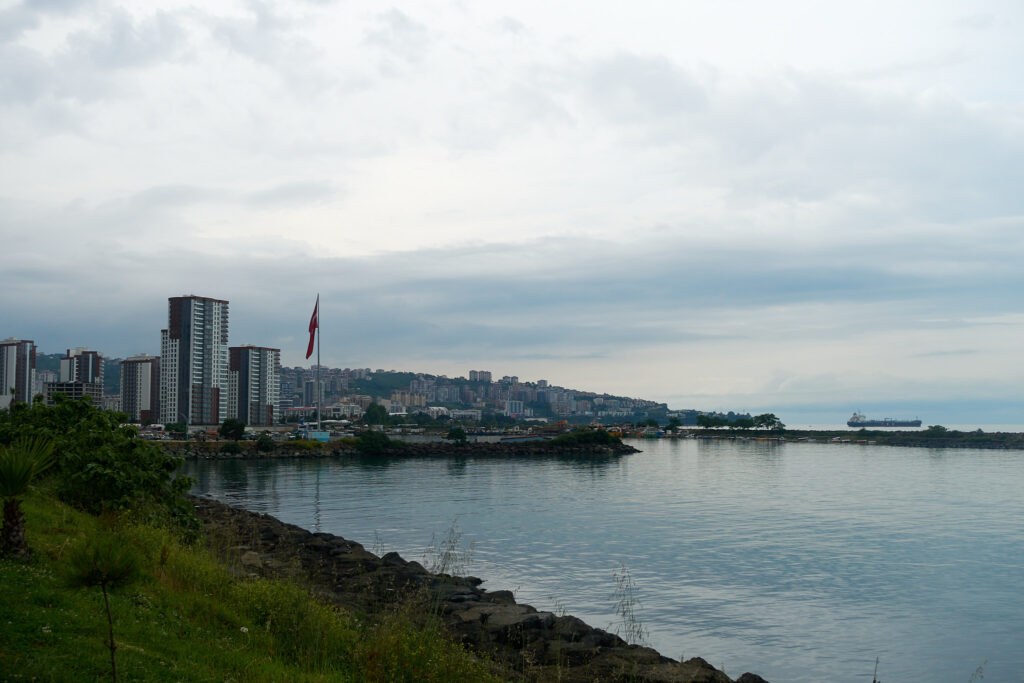
Trabzon has 770,000 inhabitants and is the main hub for hazelnuts that go all over the world. It is also home to Trabzonspor Football Club, one of the four largest in Turkey and a regular championship contender.
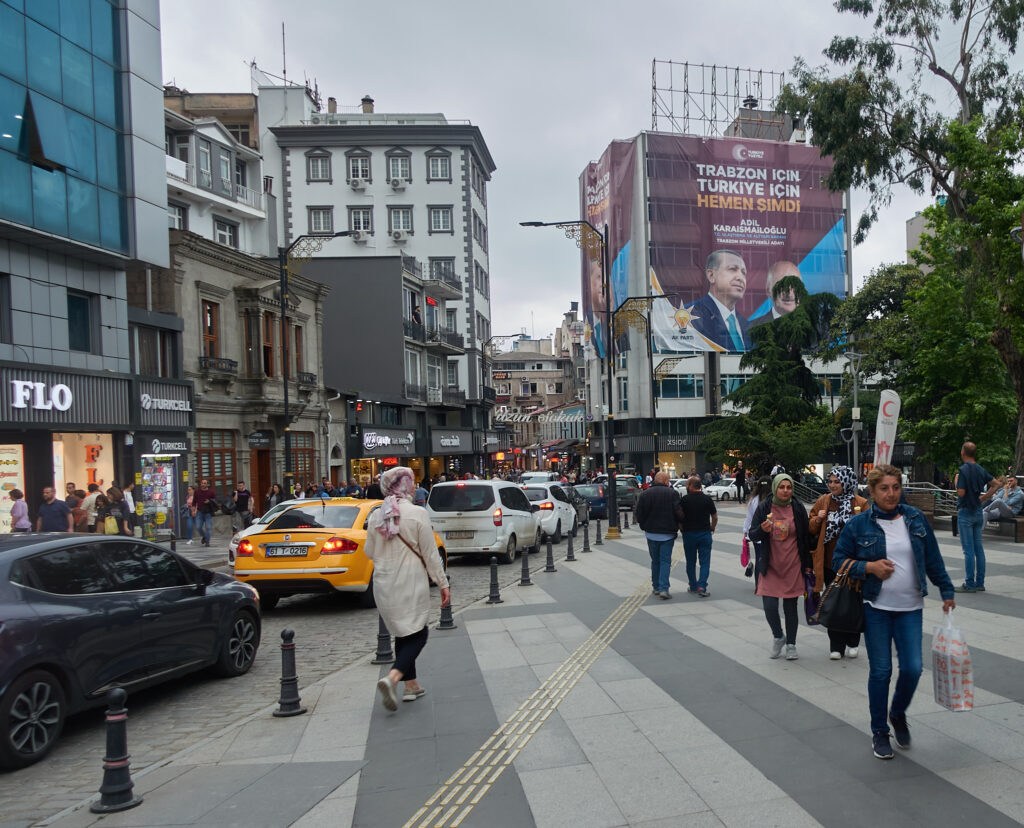

The city is full of people. In a large bookstore we find a map of Turkey, 2€, limited to cities and main roads. Does the number of guidebooks indicate the cosmopolitanism of Turkey and its people?

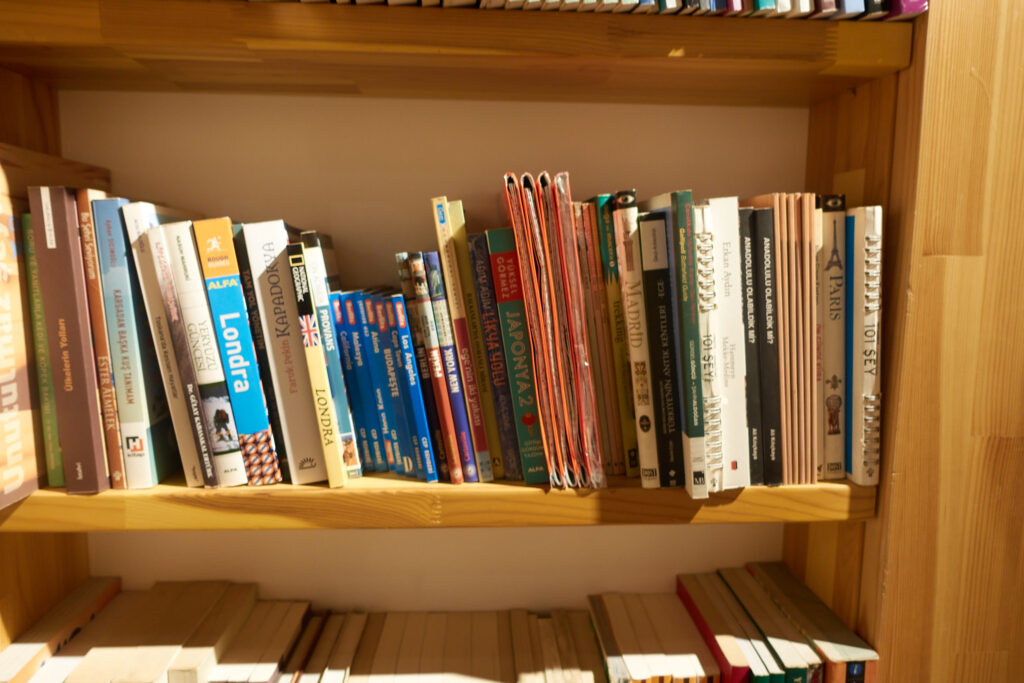
In each town there is at least one mosque with a minaret. Sometimes also a prayer room in the park, right by the toilets and with foot wash basin which Astrid uses for washing dishes. ‘Won’t happen again!’
Now the planning is going towards Cappadocia. It is a week away. However, we agree: it is a Must. Our third day on the Turkish Black Sea coast. There are tea and bread advertisement, even at the numerous football stadiums.
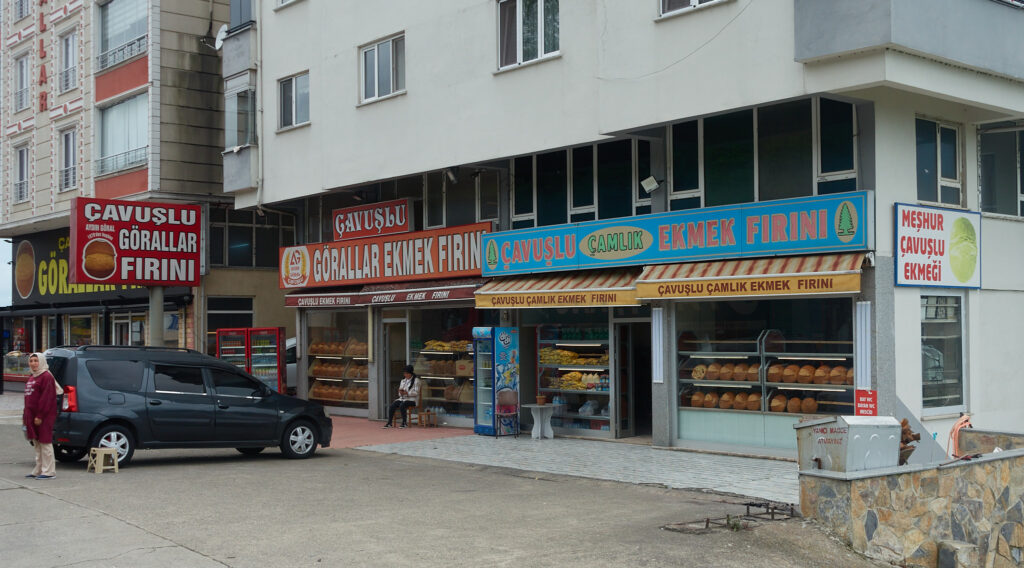
In addition, advertising for the local mayor with his supreme chief and the national flag. What else is there to advertise? The consumption of alcohol including beer is forbidden in many places and the sale only in special stores where the entrance is allowed from the age of 18 on. Car advertising does not exist and is not attractive. On the highways – freeways would be too much to say – cars are usually allowed to drive only 82km/h, buses and trucks 70km/h.
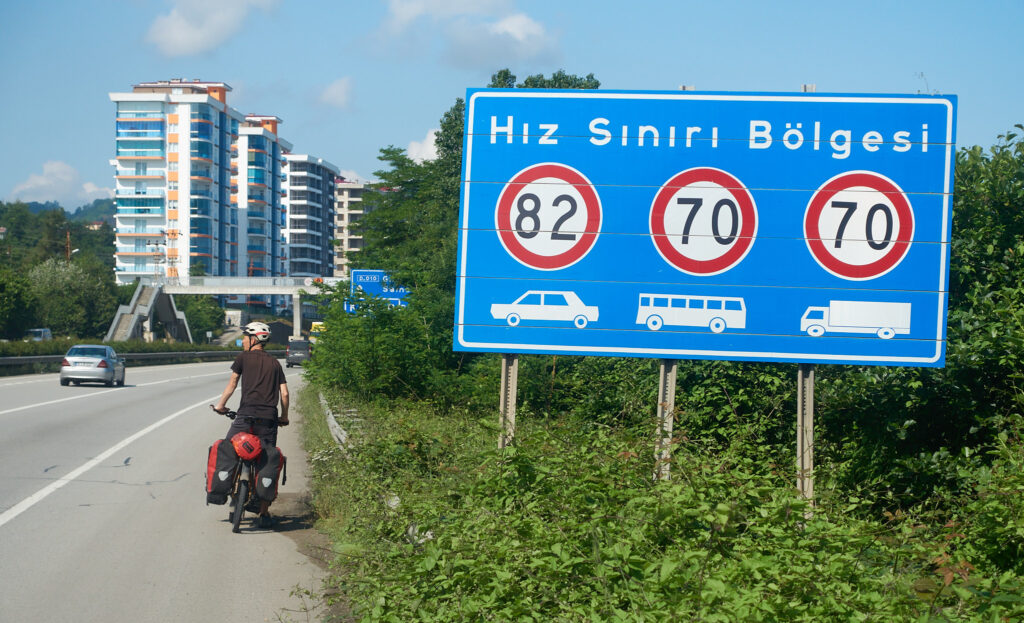
Women are seen 52% with headscarves. In our Trabzoner hotel – and not only there – one may stay overnight only with marriage certificate or marriage certificate and Astrid is, apart from the waitress at the breakfast, the only woman without a headscarf. In the morning we continue west.
It becomes more touristy. There are countless small fishing ports, even if it does not look like a big catch. The sea looks more and more like the Atlantic. The mountains of the Pontic mountains fall almost straight into the water, leaving no space for beaches. A strong west wind blows in our faces and after 130 kilometers we have reached our destination. On a rock nose with private beach and dreamlike ‘Breton wind and waves’, mild as in early summer and dry. In addition, a sunset over the sea.
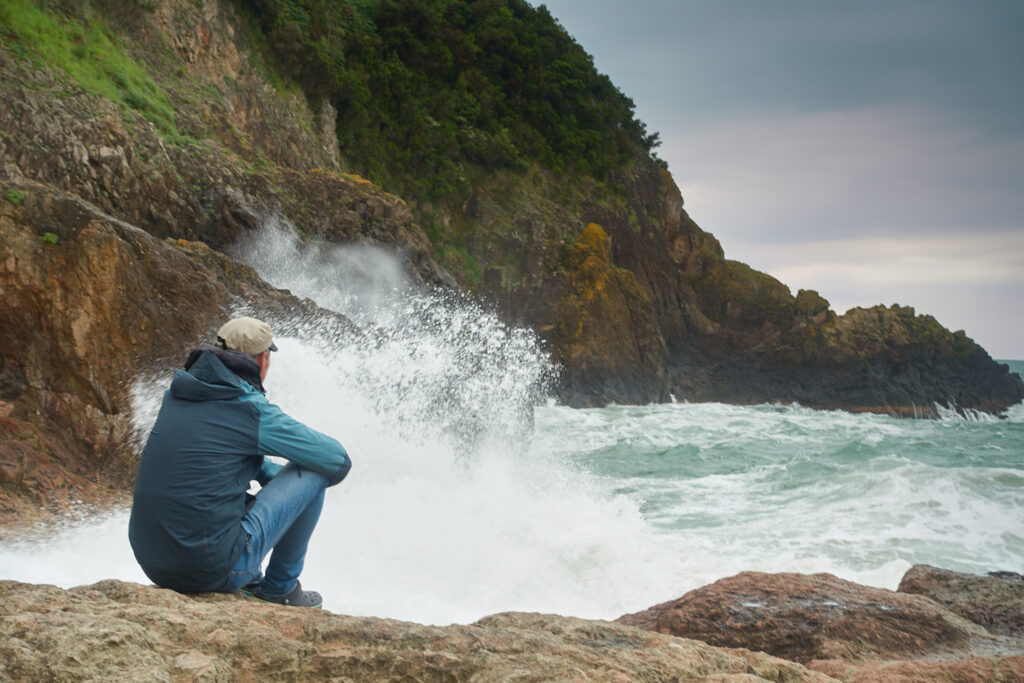
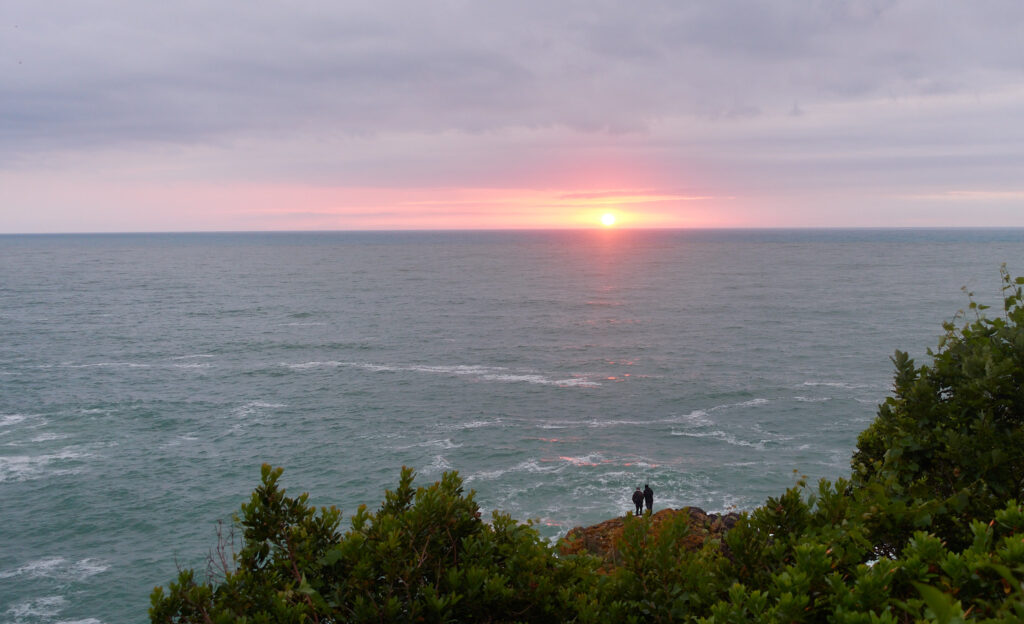
That the shower is cold and we have nothing to eat does not bother us right now. We always find some iron supplies and a warm tea is also great.
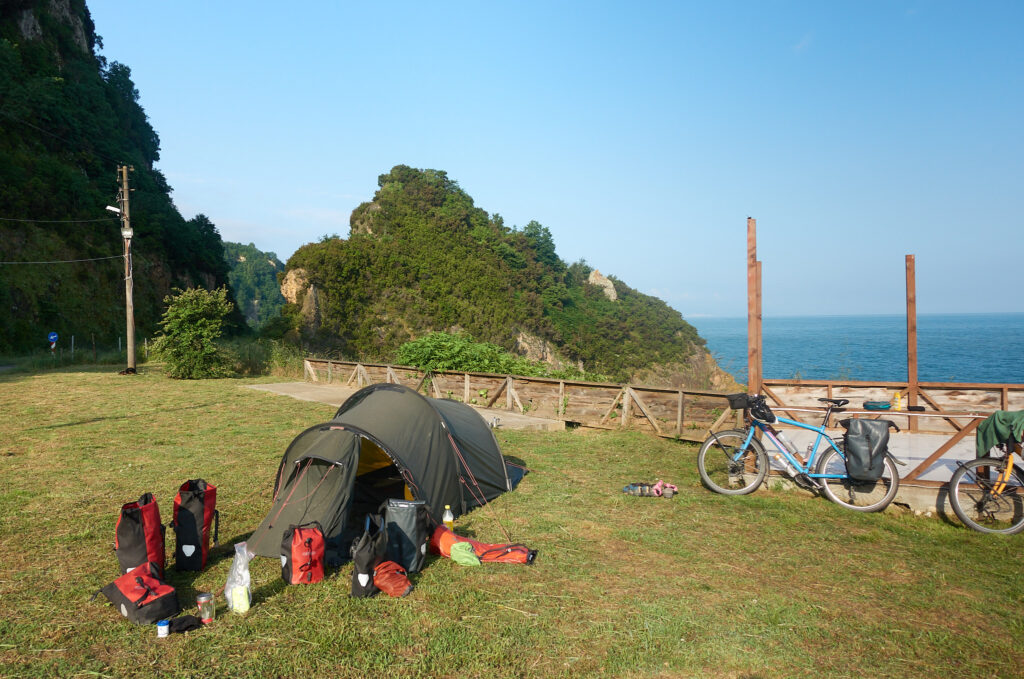
The next morning we continue. Our destination is a ledge behind Ordu. The sky is blue. There is nothing left of yesterday’s storm. So still very Breton :-). We pass Giresun and Ordu and numerous other towns. All university towns, some airports, many sports facilities and after 2375 kilometers of our journey there are the first notable bike paths next to the up to 10 lane roads. Right next to that a running track where you can jog in two lanes and then another footpath before picnic areas almost reach the water. At noon, there is fruit lunch on the beach. To the five apricots and six plums we got two bananas as a gift.
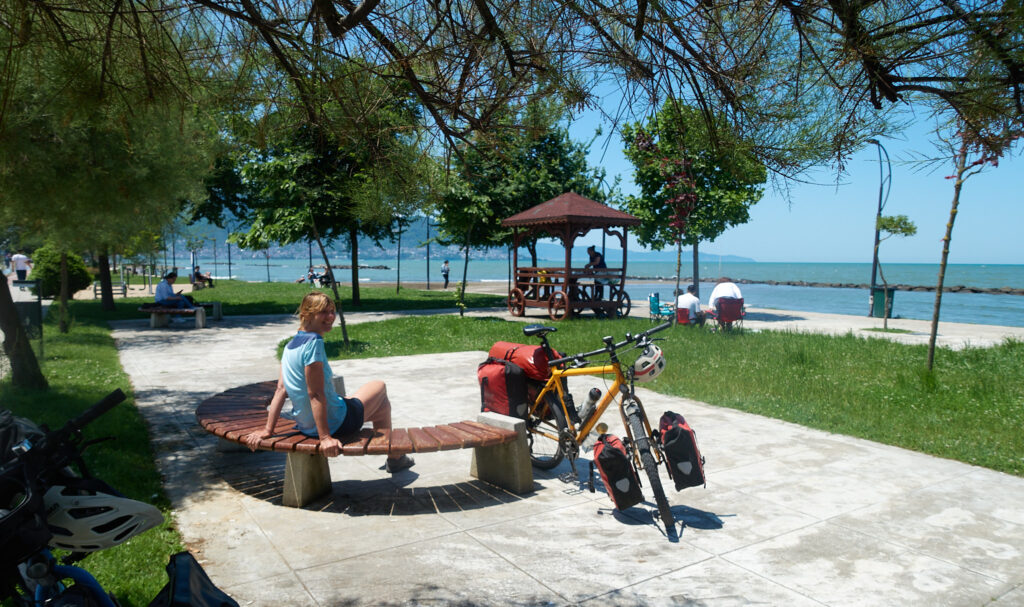
Already in the early afternoon we reach our destination, the Gölge Camp in Caka. A dream campsite with dream weather on a dream beach which is in no way inferior to the beautiful Atlantic beaches. We get a warm shower, a great meal and sit outside until the sun goes down.

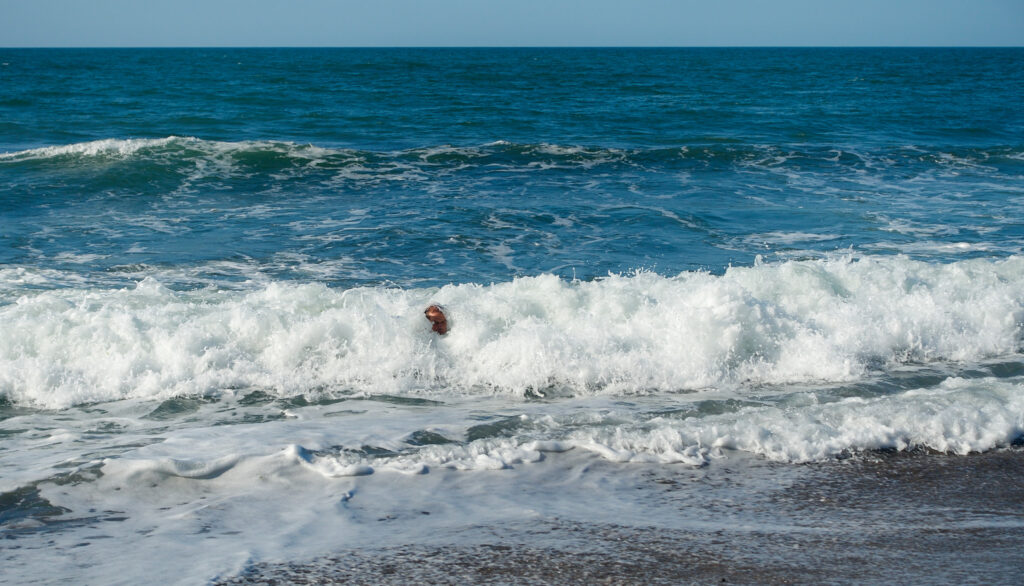
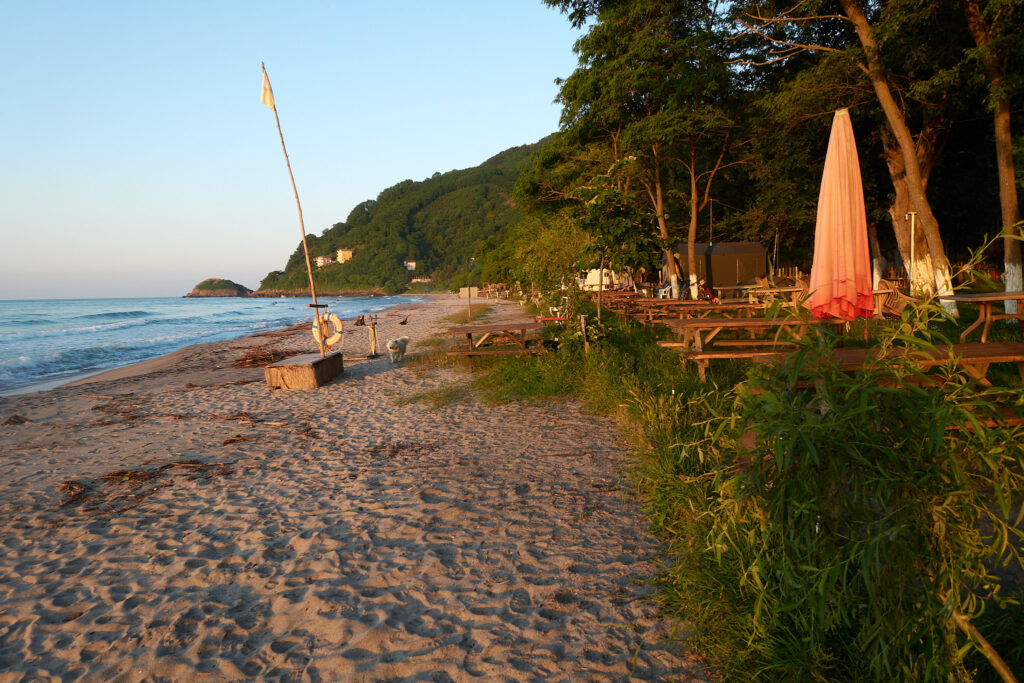
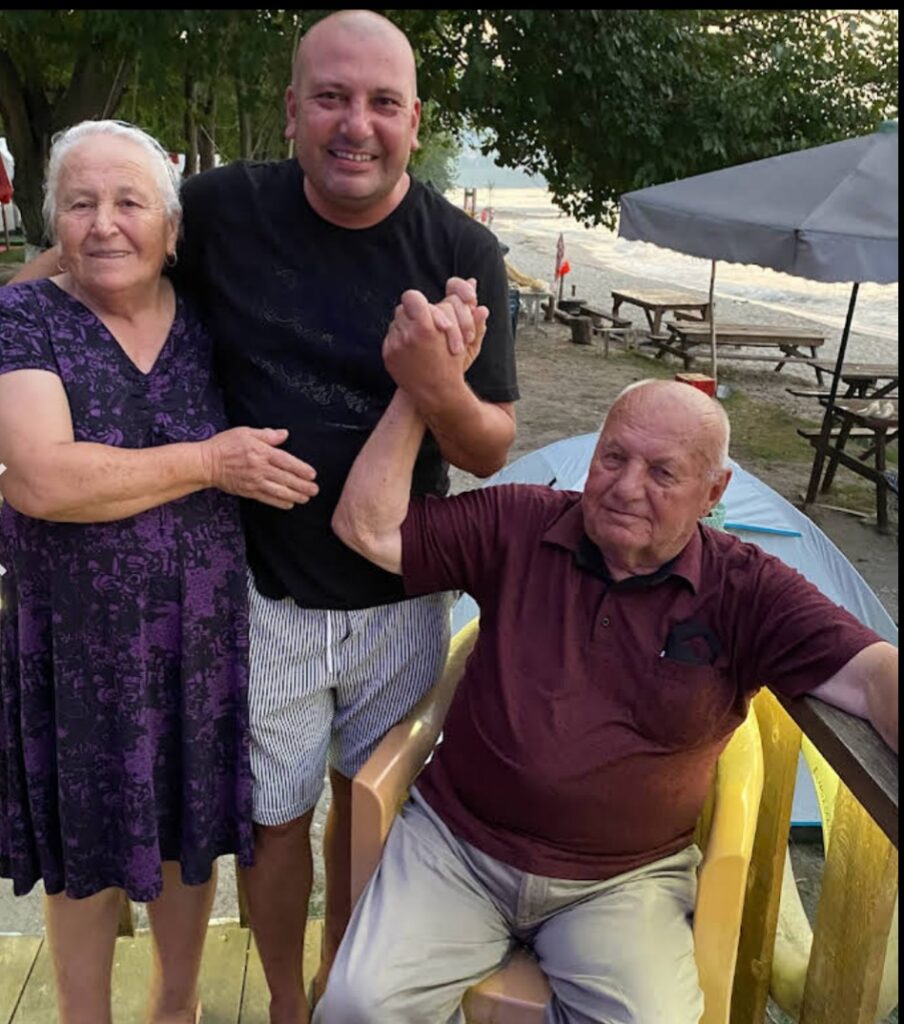
Because it is so beautiful, we take an extra day beach vacation. The view is endless and we let our souls dangle. We browse a little in our 1400-page Michael Müller travel guide, inform ourselves about the area and do a little route planning. The result is a change of plans: The clouds hang on the Pontic Mountains so often that it rains. No desire to ride through the wet clouds towards Cappadocia. Plus a non-inviting travel book description of conservative central Anatolia that we would have to ride through to get to Cappadocia. So we continue on the hard shoulder towards Istanbul!
